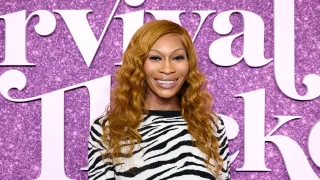
Sep 10
Transgender Content Creator Alleges Shadowbanning as Social Media Platforms Roll Back LGBTQ+ Protections
READ TIME: 3 MIN.
In May 2025, a widely followed transgender content creator, who produces educational and advocacy videos on platforms such as Instagram and YouTube, reported a sharp decline in engagement and discoverability. This comes in the wake of significant policy changes on major social media platforms, including Meta and YouTube, which advocacy groups and users say have led to the shadowbanning and disproportionate suppression of LGBTQ+ content .
The creator, who requested to be identified by her handle @TransEduVoice for safety reasons, described a sudden drop in reach: “After years of consistent growth, my posts on trans healthcare and lived experience stopped appearing in hashtags and recommended feeds. DMs from followers said they were no longer seeing my updates, even with notifications turned on,” she explained .
Her experience is consistent with findings from the 2025 Social Media Safety Index released by GLAAD, the world’s largest LGBTQ+ media advocacy organization. The report details how platforms including Instagram, Facebook, and YouTube have not only rolled back specific protections but also disproportionately suppress LGBTQ+ content through algorithmic demotion, removal, and forms of shadowbanning .
GLAAD’s 2025 SMSI highlights that YouTube’s recent removal of “gender identity” as a protected characteristic in its hate speech policy, and Meta’s new exceptions allowing anti-LGBTQ slurs and harassment, have resulted in a chilling effect on LGBTQ+ creators . These policy shifts now permit statements such as calling LGBTQ+ people “abnormal” or “mentally ill” under the guise of political or religious discourse, crossing what many advocates consider a critical line between offensive and dangerous speech .
When asked about the changes, a Meta spokesperson told Business Insider that its prior policies were “too far-reaching” and that the updates aimed to distinguish between offensive and potentially dangerous speech, while still prohibiting dehumanizing attacks and slurs. However, LGBTQ+ advocates and creators assert that the real-world impact is a dramatic reduction in the visibility and safety of LGBTQ+ voices .
Many creators, including @TransEduVoice, report that their posts are being flagged or restricted not for violating community guidelines, but for allegedly containing “sensitive” or “sexually suggestive” content—a categorization that disproportionately affects LGBTQ+ topics, even when the material is educational or non-explicit . For several months, Instagram blocked teens from searching commonly used LGBTQ+ hashtags, including #trans, #lesbian, #queer, and #nonbinary, under its sensitive content policy. This effectively hid a wide array of LGBTQ+ content from a major segment of the platform’s users .
Carmen Hernandez, founder of the LGBTQ+ app Freddie, described the climate as “the most anti-LGBTQ announcement that a social-media platform has made in recent memory.” She added, “What I felt, time again, is that Big Tech doesn’t really cater to us because they don’t care about us” .
GLAAD and other advocacy organizations have responded by issuing urgent calls for tech companies to reinstate and strengthen policies that protect LGBTQ+ users. Their recommendations include mandatory training for content moderators on LGBTQ+ issues, increased algorithmic transparency, and meaningful collaboration with independent researchers to monitor the impacts of policy changes .
Sarah Kate Ellis, GLAAD’s President and CEO, stated: “Social media platforms must be held accountable for the harms they cause. These rollbacks embolden hate and silence voices that need to be heard most.” The organization’s SMSI report urges platforms to reduce data collection and surveillance practices that may disproportionately impact LGBTQ+ users, and to proactively promote civil discourse .
In response to growing frustration, many LGBTQ+ creators and users are migrating to alternative social media platforms designed with safety and inclusion as core values. Apps such as Freddie, Lex, and Collective have reported a surge in new users since Meta and YouTube’s policy changes. These platforms emphasize community moderation, transparent guidelines, and privacy protections .
As Carmen Hernandez noted, “We’re going to keep as a beacon.” While some creators have deleted personal accounts on mainstream platforms, they maintain public pages to direct users to safer spaces .
Advocacy groups warn that the suppression of LGBTQ+ content and the rise in anti-LGBTQ rhetoric on social media have direct offline consequences, including increased harassment and threats to physical safety . The 2025 SMSI report draws a clear connection between online disinformation and real-world harms, underscoring the urgent need for platforms to reverse recent rollbacks and transparently address algorithmic bias.
As @TransEduVoice summarized, “This isn’t just about my videos. It’s about every young person who needs to see someone like them thriving, and every resource that is now harder to find. Social media is a lifeline for so many in our community.”






